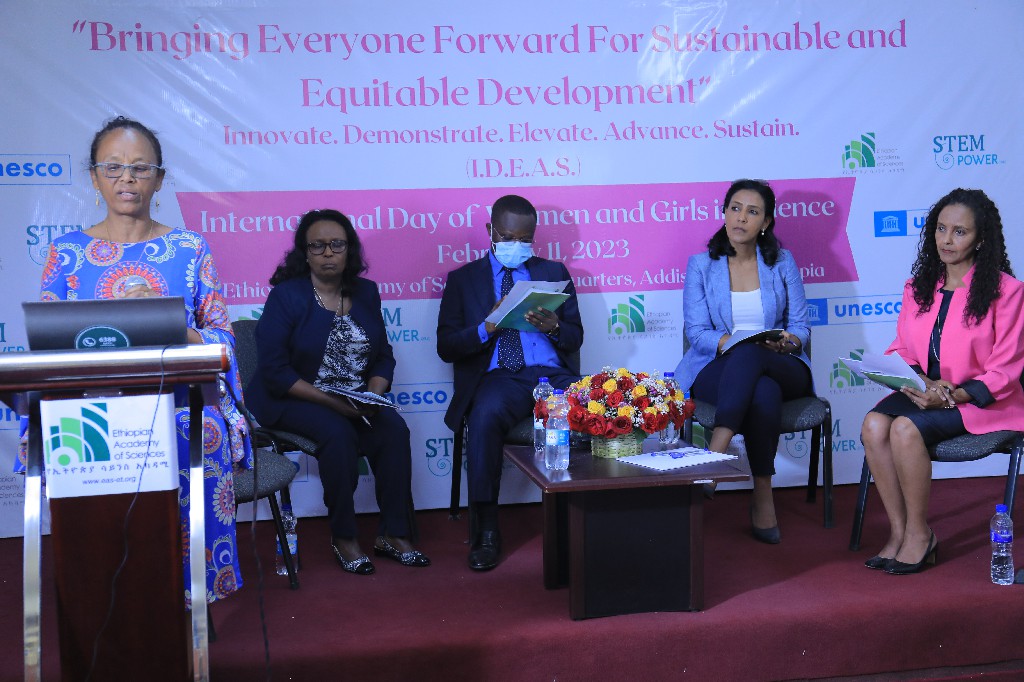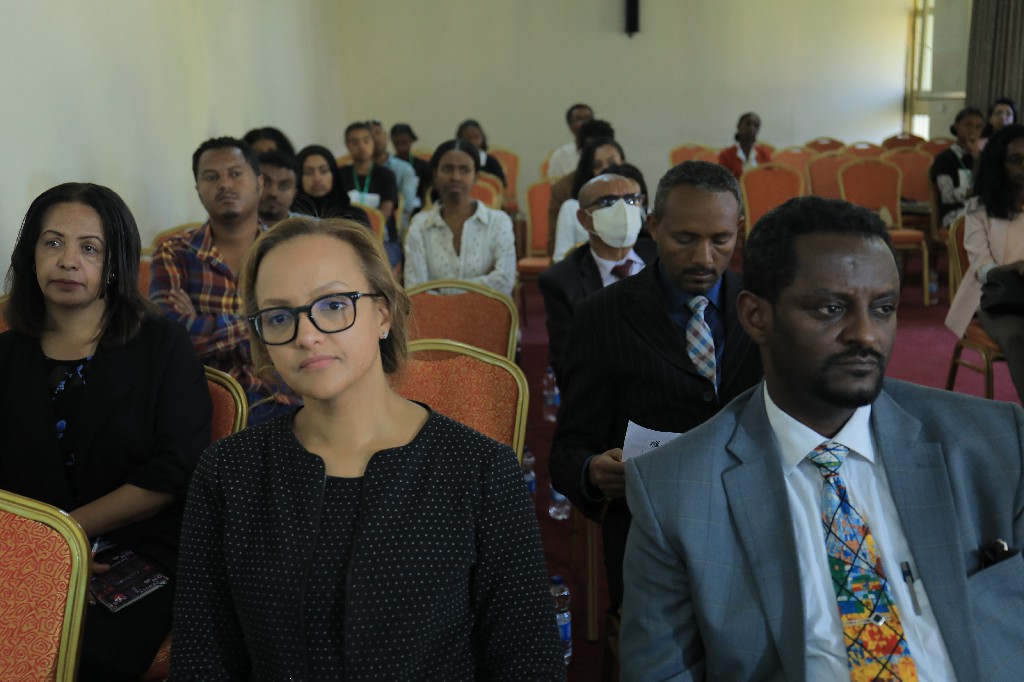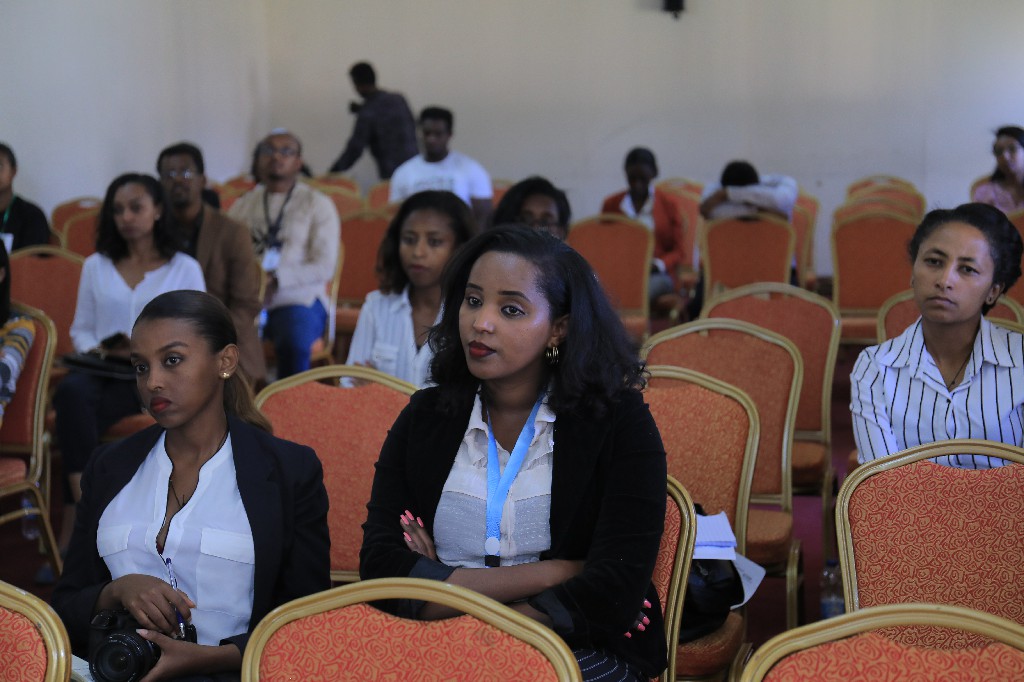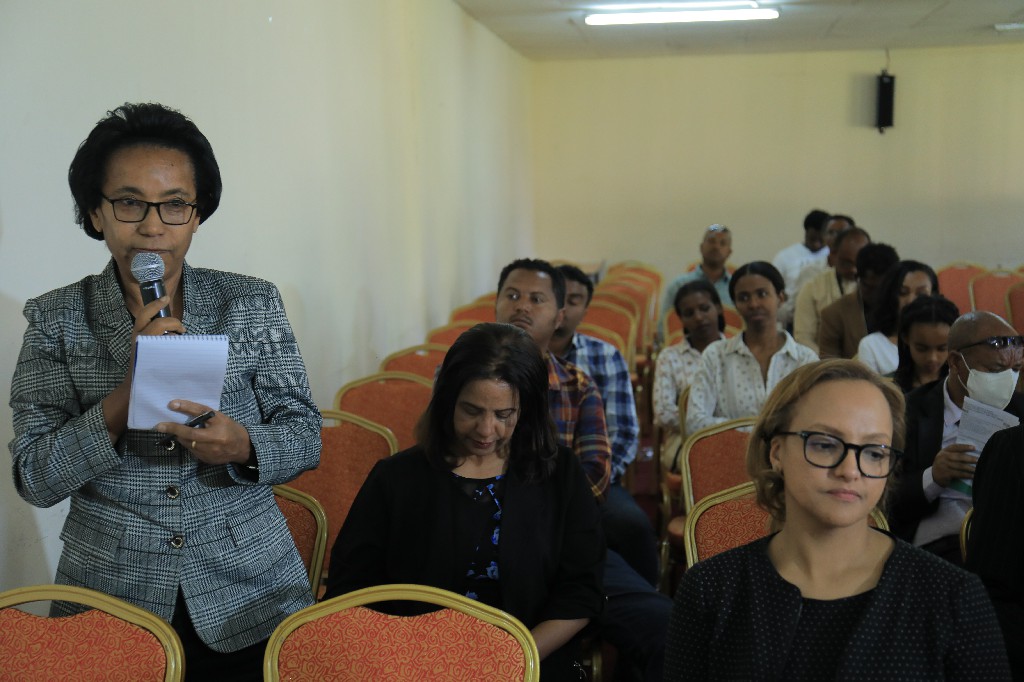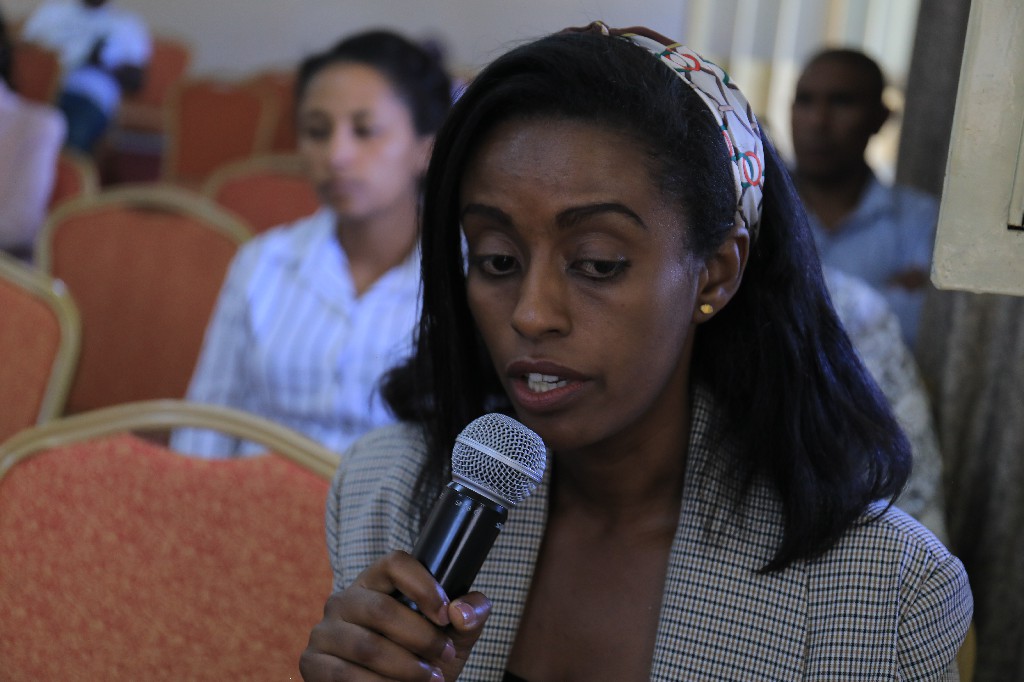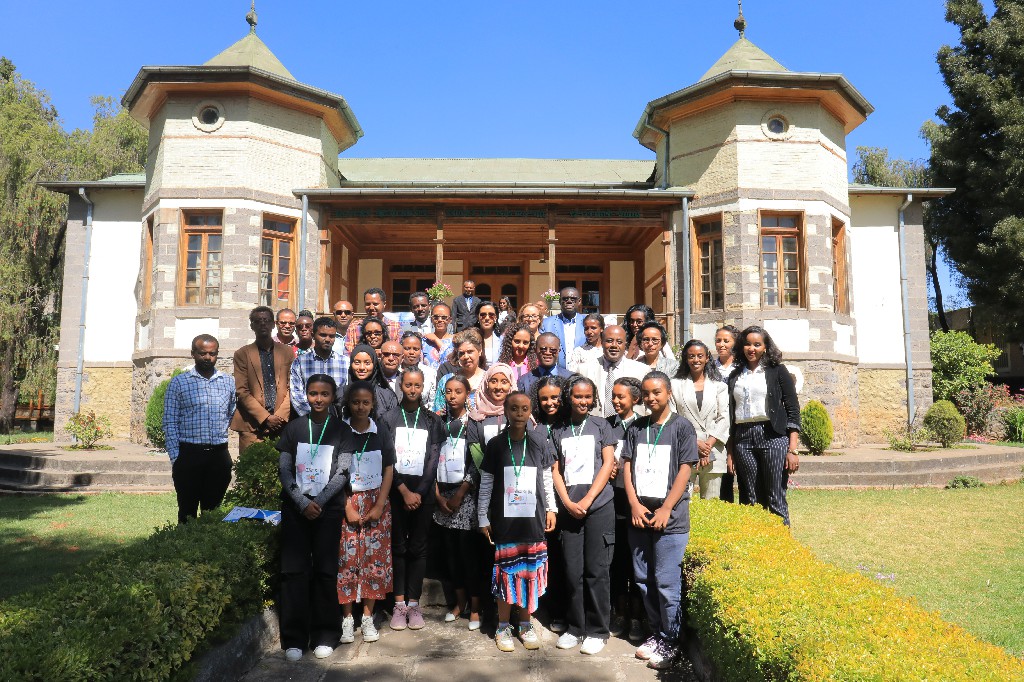
The event was organized by Ethiopian Academy of Sciences (EAS) in collaboration with STEM Power and UNESCO Addis Ababa Liaison Office. At the event, there was an exhibition and panel discussion. Dr. Tibebeselassie Seyoum Keflie, the Deputy Executive Director of EAS, introduced the program of the event to the participants from different sectors and backgrounds including schools. There is a significant gender gap on the participation of women and girls in Science, Technology, Engineering and Mathematics (STEM) academic careers as Tibebeselassie mentioned.

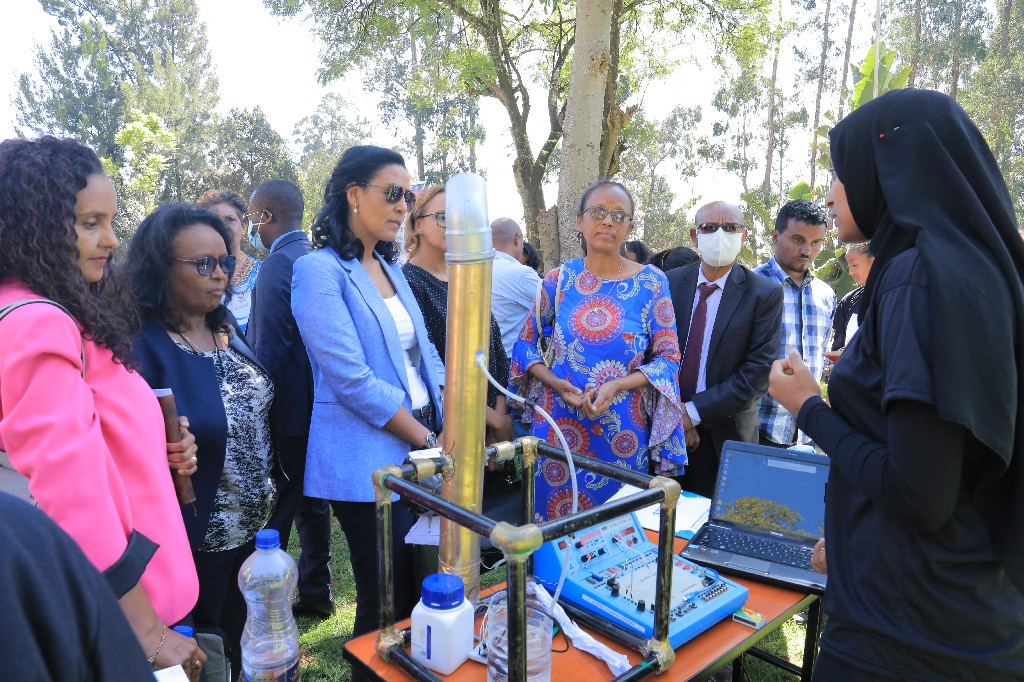
Dr.Samuel Parety, the Director of Science Program at UNESCO Addis Ababa Liaison Office, explained briefly the objective of the event. He indicated that gender equality and the empowerment of women and girls are not only important for global economic development but also have a great contribution to the 2030 Agenda for Sustainable Development Goals.
In her welcome remark, Dr. Rita Bissoonauth, the Director of UNESCO Addis Ababa Liaison Office and Representation to Ethiopia, underlined the importance of the event. She described that UNESCO and other UN organizations in collaboration with different partners celebrate the event annually on February 11 to promote women and girls in science. Gender equality is a global priority for UNESCO which encourages girls to study science and technology. In a world where only 30% of researchers are women, events like this have paramount significance to increase the representation of women in scientific research and leadership.

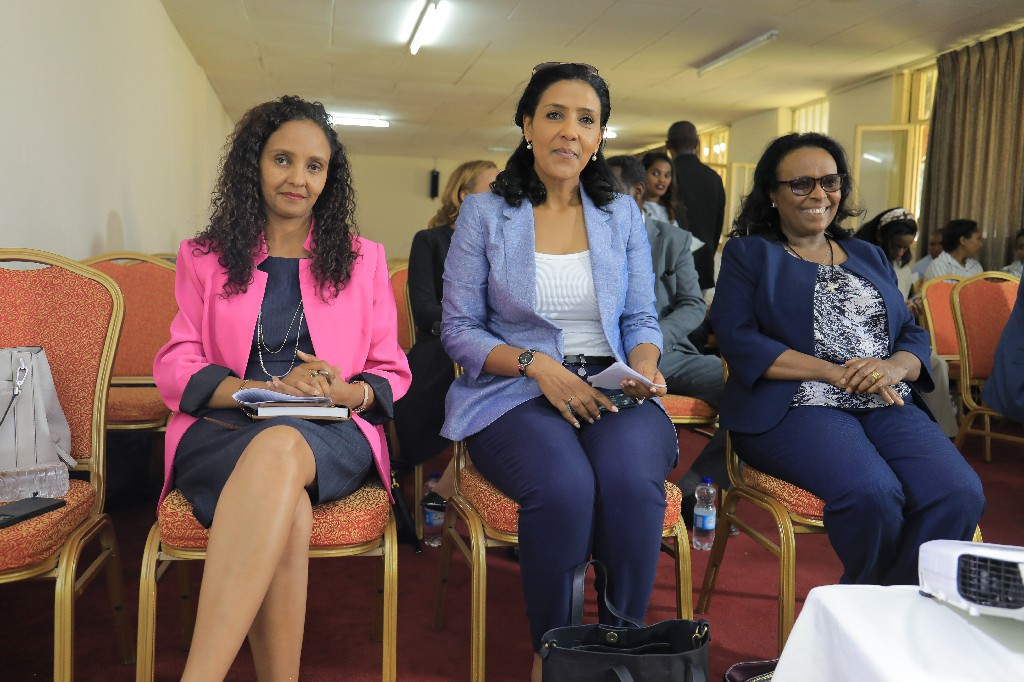
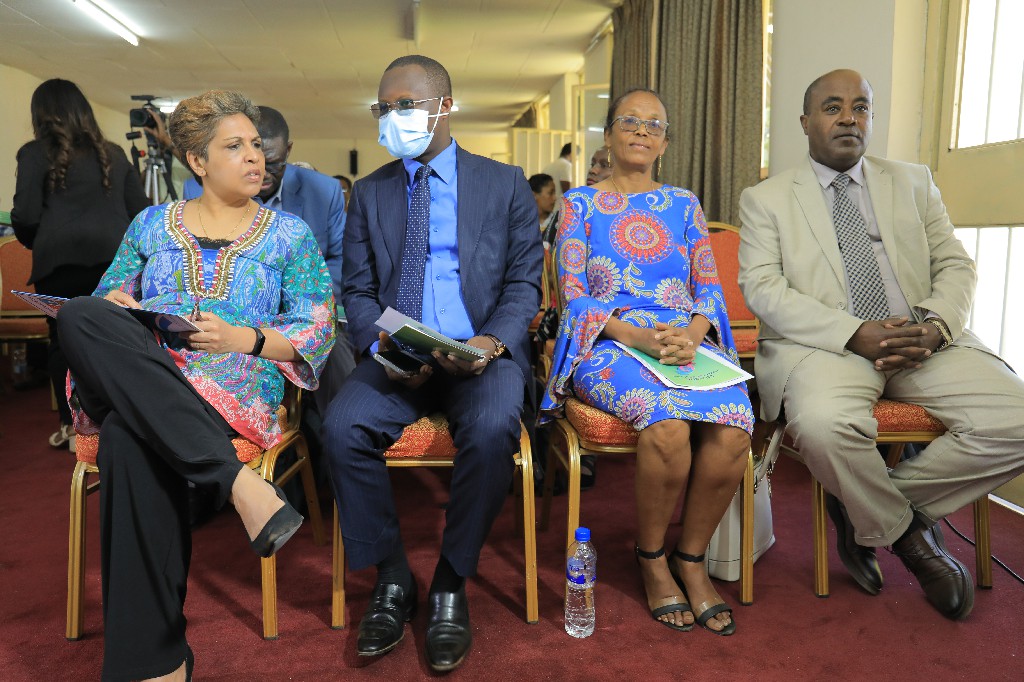
The STEM power Country Director, Dr. Simeneh Keskes mentioned in his remark that every child is born a scientist.
Speaking at the event, Prof. Teketel Yohannes, the Executive Director of EAS, explained about the academy and addressed the activities that academy has undertaken so far in relation to gender equity and equality. The academy has established the Ethiopian Gender Learning Forum to promote gender equality in higher education and research institutions.
The panel discussion was moderated by Mrs. Yemeserach Belayneh, Country Advisor, The David and Lucile Packard Foundation, Ethiopia. Mrs. Yemeserach stated that women and girls represent half of the world’s population and thus it makes little sense to exclude them from the scientific and technological works.
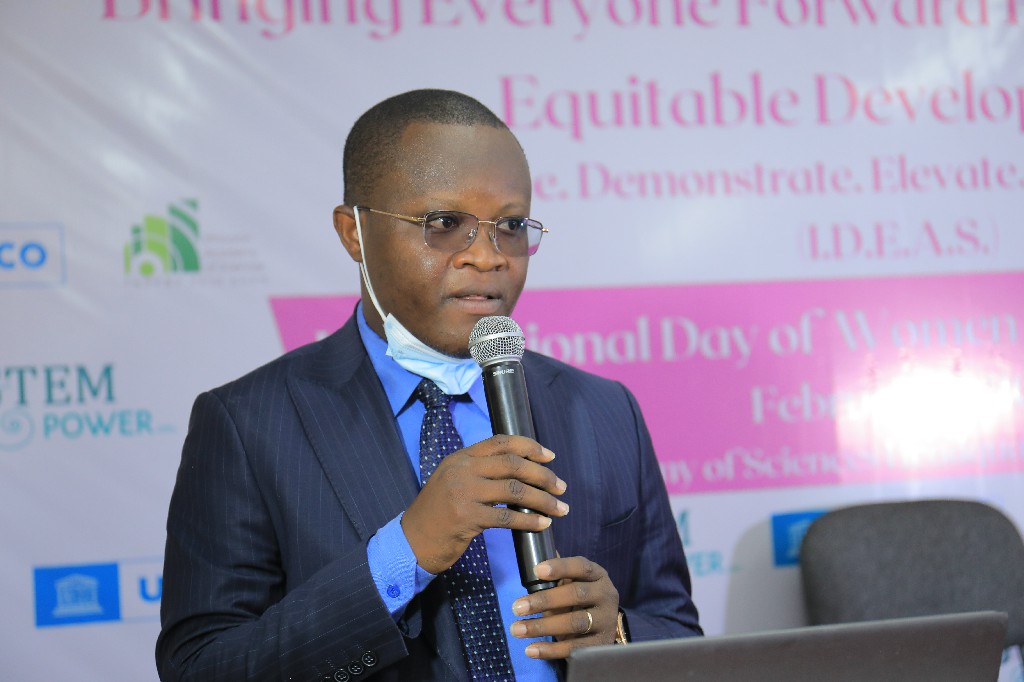
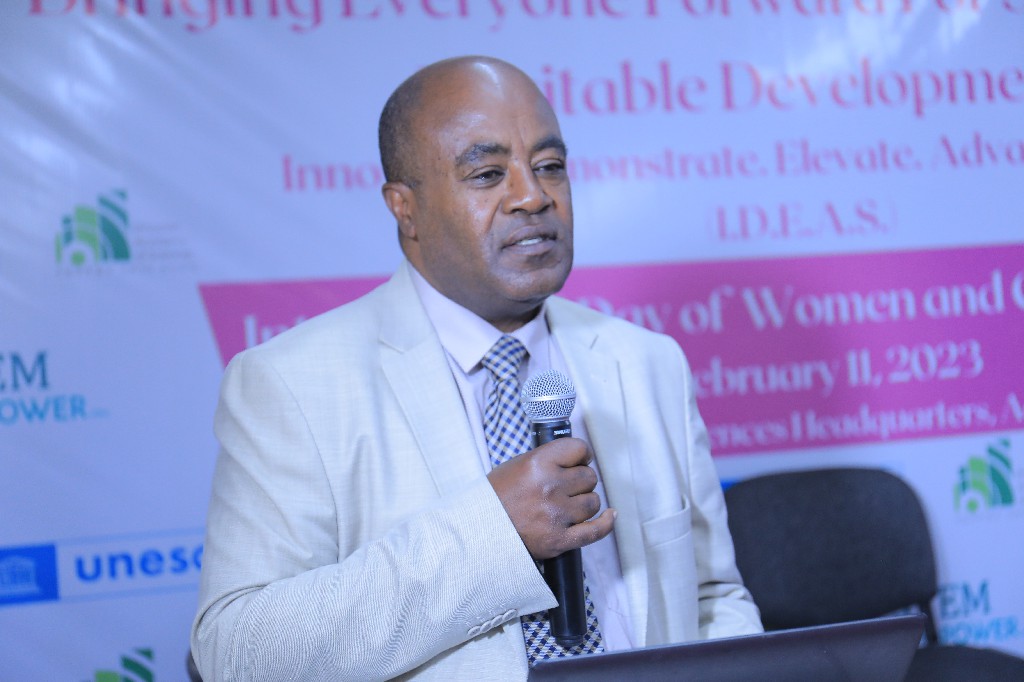
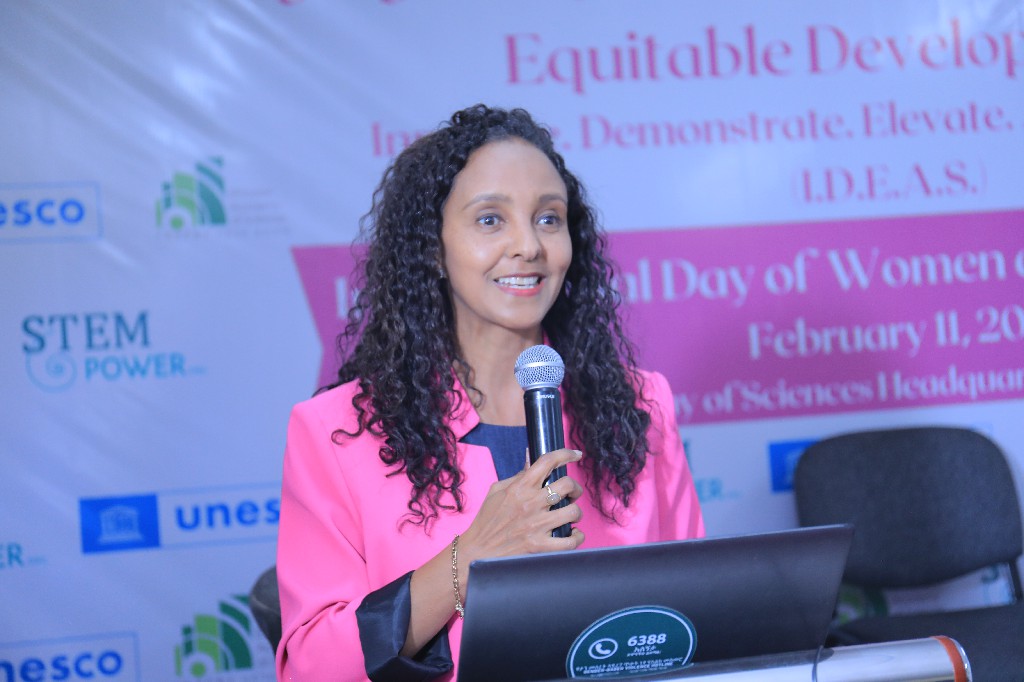
The Panelists were Dr. Aster Tsegaye, Dr. Mitike Molla, Dr. Samuel Partey, and Mrs. Kidist Gebreamlak.
Dr. Aster, Chairperson of Society of Ethiopian Women in Science and Technology (SEWiST), said that the participation of women in science, research, and social services is less than 30%. She also reiterated the fundamental message ‘’women need science and science needs women’’.
Dr. Mitike from Addis Ababa University and Mrs. Kidist from Zero One Zero One PLC pointed out that although the numbers of girls in school are better than ever before, women and girls are still underrepresented in STEM fields. Ethiopia has a few female scientists but girls at school can use them as a role model, said Dr. Partey.
The panel discussion was summarized by Lilian Adhiambo, AUYV/ Earth and Ecological Sciences Associate at UNESCO. Finally, the event was closed by the remarks of Dr. Abdoulaye Salifou, the Chief of the Education Section, UNESCO Addis Ababa Liaison Office.
